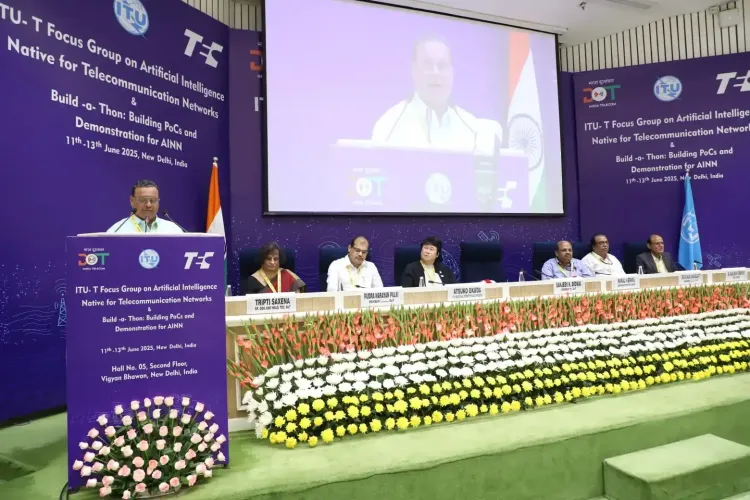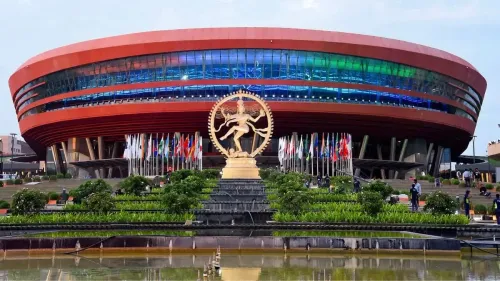Will Future Telecom Networks Embrace AI?

Synopsis
Key Takeaways
- AI integration is transforming telecom network architecture.
- India is pioneering AI initiatives like 'Bharat Gen'.
- Ethical deployment of AI is essential for security and inclusivity.
- AI-native networks promise next-gen performance.
- Collaboration is key to bridging the digital divide.
New Delhi, June 11 (NationPress) According to a senior official from the Department of Telecommunications (DoT), future telecom networks will integrate Artificial Intelligence (AI), marking a significant transformation in telecom architecture. During the opening session of the International Telecommunication Union (ITU-T) Focus Group meeting, Sanjeev Bidwai, Member (Technology) of DoT, emphasized AI's increasing influence in 3GPP standards, facilitating intelligent orchestration across various domains.
Bidwai showcased India's proactive initiatives, such as ‘Bharat Gen’—the country’s inaugural indigenously developed, government-supported, AI-enabled Multimodal Large Language Model (LLM) tailored for Indian languages. He also mentioned various projects spearheaded by IITs and CDOT focusing on AI-driven network automation and digital twins.
He stressed the necessity of implementing AI in a manner that is ethical, inclusive, and secure, calling attention to the importance of explainability, digital sovereignty, and the advancement of regulatory frameworks.
In a video message, Seizo Onoe, Director of the Telecommunication Standardization Bureau at ITU, highlighted the capabilities of AI-native networks to provide next-generation performance through intelligent automation, self-management, and real-time optimization.
Atsuo Okuda, ITU Regional Director for Asia-Pacific, pointed out the region's crucial role as a hub for digital innovation, emphasizing that AI-native networks are vital for developing smart, secure, and responsive communication infrastructures.
She also noted the necessity for collaborative approaches to eliminate the digital divide and support emerging applications in sectors like smart cities, healthcare, and education.
During the meeting, India requested the backing of ITU members for its proposal to host the ITU Plenipotentiary Conference 2030 (PP-30), continued participation in the upcoming ITU Council (2027-2031), and support for Indian nominee, M. Revathi, as the first woman and regional candidate for Director of the ITU Radiocommunication Bureau (2027–30).
This gathering represents a pivotal moment in defining the future of AI-native telecommunication networks, with the potential to transform the global communications landscape, according to the Ministry of Communications.









